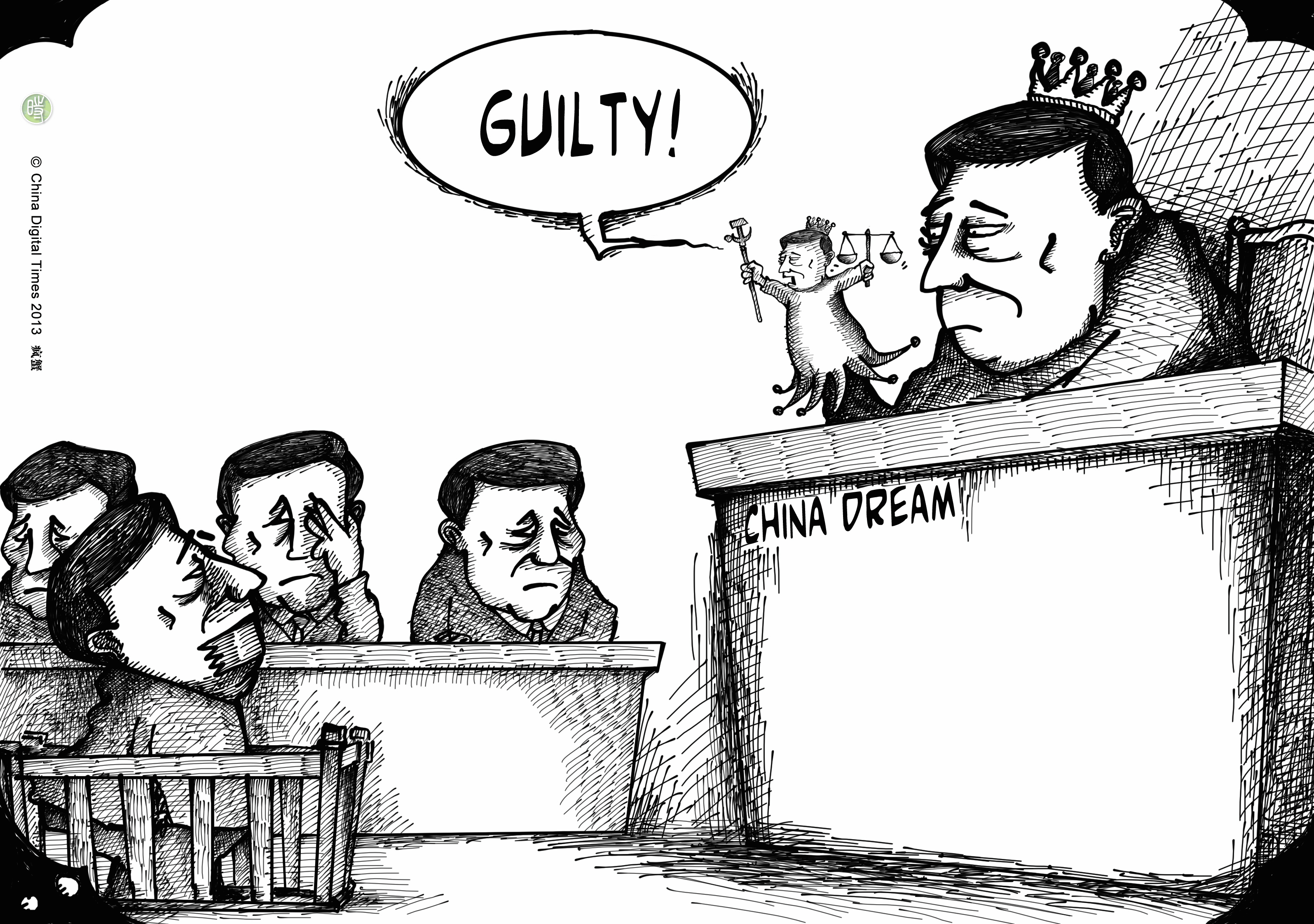By Benjamin Haas in Hong Kong

More than half a dozen political prisoners in China should freed, the United States and European Union have said, citing a deteriorating human rights situation that has seen hundreds lawyers and activists detained in the past year.
Since coming to power in 2012, Xi Jinping has presided over a wide-ranging crackdown on freedom of expression, rights lawyers, feminists, activists and religion.
About 250 lawyers and activists were detained by police starting in July last year in what some have called a “war on law”.
“I remain extremely concerned about the ongoing detention of Chinese lawyers,” Max Baucus, the US ambassador to China, said in a statement.
“I remain extremely concerned about the ongoing detention of Chinese lawyers,” Max Baucus, the US ambassador to China, said in a statement.
“China’s treatment of these lawyers and advocates calls into question its commitment to the rule of law.”
Crusading attorneys Li Heping, Wang Quanzhang, Xie Yang and Xie Yanyi all remain remain behind bars, and Baucus singled out their cases and called for their release.
Crusading attorneys Li Heping, Wang Quanzhang, Xie Yang and Xie Yanyi all remain remain behind bars, and Baucus singled out their cases and called for their release.
The EU echoed many of the same sentiments and highlighted the same jailed lawyers.
“We urge China to immediately release any individual who has been detained … for seeking to exercise, protect or promote their own rights or the rights of others,” the EU statement said.
The US and EU made the calls to mark Human Rights Day, a United Nations holiday commemorating the adoption of the Universal Declaration of Human Rights, which China signed.
“During the past year, we have been extremely troubled about the deterioration of the situation with respect to freedom of expression and association,” the EU statement said.
“We are equally concerned about all human rights defenders and their family members who have been harassed and punished because of their work in promoting rights which are protected in China’s Constitution and international law.”
Both the US and EU called for Nobel Peace prize laureate and democracy activist Liu Xiaobo, who has been in prison since 2008, to be freed.
Tashi Wangchuk, a jailed Tibetan language advocate, was also mentioned by both governments.
“We urge China to immediately release any individual who has been detained … for seeking to exercise, protect or promote their own rights or the rights of others,” the EU statement said.
The US and EU made the calls to mark Human Rights Day, a United Nations holiday commemorating the adoption of the Universal Declaration of Human Rights, which China signed.
“During the past year, we have been extremely troubled about the deterioration of the situation with respect to freedom of expression and association,” the EU statement said.
“We are equally concerned about all human rights defenders and their family members who have been harassed and punished because of their work in promoting rights which are protected in China’s Constitution and international law.”
Both the US and EU called for Nobel Peace prize laureate and democracy activist Liu Xiaobo, who has been in prison since 2008, to be freed.
Tashi Wangchuk, a jailed Tibetan language advocate, was also mentioned by both governments.
His case is emblematic of the hardline stance China has taken towards ethnic minorities who do not toe the Communist party line.
Another victim of those policies is Ilham Tohti, a Muslim Uighur academic sentenced to life in prison, who the EU said should be released.
“I can tell you that China’s approach to human rights directly impacts our overall bilateral relationship,” Baucus said.
“I can tell you that China’s approach to human rights directly impacts our overall bilateral relationship,” Baucus said.
“While other countries celebrate when their citizens win the Nobel Peace prize, Chinese Peace prize winner Liu Xiaobo remains jailed.”
The strongly-worded statement on human rights from the US may be its last for a while, Chinese activists worry.
The strongly-worded statement on human rights from the US may be its last for a while, Chinese activists worry.
They fear president-elect Donald Trump will pull back from defending right around the world.
Curiously absent from the EU statement was Gui Minhai, a Swedish national and publisher of books critical of China’s leaders, who was abducted from Thailand a year ago.
Curiously absent from the EU statement was Gui Minhai, a Swedish national and publisher of books critical of China’s leaders, who was abducted from Thailand a year ago.
He later appeared in China, giving a televised “confession”.
More than 120 authors also took the opportunity of Human Rights Day to call on Xi to his end his government’s fierce crackdown on writers and dissidents, with the authors saying they “cannot stand by as more and more of our friends and colleagues are silenced”.
More than 120 authors also took the opportunity of Human Rights Day to call on Xi to his end his government’s fierce crackdown on writers and dissidents, with the authors saying they “cannot stand by as more and more of our friends and colleagues are silenced”.

Aucun commentaire:
Enregistrer un commentaire